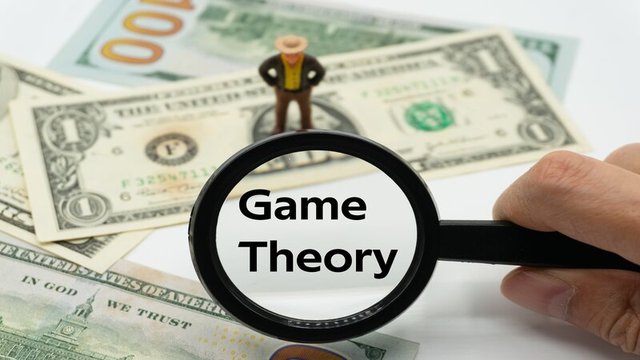
What is game theory in economics?
April 22, 2024

In the world of economics, decisions are seldom made in isolation. They are influenced by numerous factors, including the actions of others.
This intricate interplay of decisions and strategies is aptly captured by something called game theory, a powerful tool that delves into the dynamics of strategic interactions. In this post, we'll delve into the nuances of game theory, its application in economics, the types of game theory, and its benefits and limitations.
And if you are interested in a career as a game theory economist or wish to work in the financial or economics sector, you should consider the degree in Economics or the joint degree in Business Analytics and Economics at Universidad Europea in Madrid.
Definition of game theory
At its core, game theory is a mathematical framework that analyses interactions between rational decision-makers. It explores how these actors anticipate and respond to the actions of others, aiming to identify optimal strategies in various scenarios.
Originating from the works of scholars like John von Neumann and John Nash, game theory has transcended its roots in mathematics and found profound applications across disciplines, including economics.
Game theory application in economics
In economics, individuals, firms, and governments strategise their choices based not only on their own objectives but also on their expectations of how others will act.
Game theory provides a structured approach to understanding these strategic interactions, offering insights into competitive behaviours, pricing strategies, negotiations, and more.
By modelling economic interactions as games, economists can analyse various scenarios and predict outcomes with greater precision.
Types of game theory
Game theory encompasses a spectrum of classifications, each shedding light on different aspects of strategic interactions:
- Symmetric and Asymmetric Games: Symmetric games involve players with identical strategies and payoffs, while asymmetric games feature players with distinct roles or capabilities.
- Simultaneous and Sequential Games: In simultaneous games, players make decisions simultaneously, without knowledge of each other's choices. In contrast, sequential games involve players making decisions in a specific order, often with the knowledge of prior actions.
- Zero-Sum and Non-Zero-Sum Games: Zero-sum games entail situations where one player's gain is exactly balanced by another player's loss. Non-zero-sum games, on the other hand, allow for outcomes where both players can gain or lose collectively.
- Cooperative and Non-Cooperative Games: Cooperative games involve players collaborating to achieve common goals, often through binding agreements. Non-cooperative games, however, entail independent decision-making without formal agreements.
An example of game theory: The prisoner’s dilemma
The prisoner's dilemma serves as a quintessential example of game theory in action. Imagine two suspects apprehended for a crime, held in separate cells with no means of communication.
Each prisoner faces a choice: cooperate with their accomplice by remaining silent or betray them by confessing to the crime.
If both prisoners remain silent (cooperate), they receive a lighter sentence collectively. However, if one confesses while the other remains silent, the betrayer walks free while the other faces a severe penalty. If both confess (defect), they both receive moderate sentences.
This dilemma illustrates the tension between individual rationality and collective welfare, showcasing how self-interest can lead to suboptimal outcomes.
Benefits and limitations of game theory
Game theory offers numerous benefits, including its ability to model complex interactions, predict strategic behaviours, and inform decision-making in various domains.
However, it also has limitations, such as the assumption of rationality among players, the challenge of predicting human behavior accurately, and the complexity of analyzing real-world scenarios with numerous variables.
In conclusion, game theory serves as a powerful lens through which economists analyse strategic interactions in diverse contexts. By understanding the dynamics of decision-making, economists can devise more effective policies, strategies, and interventions to navigate the complexities of the economic landscape.